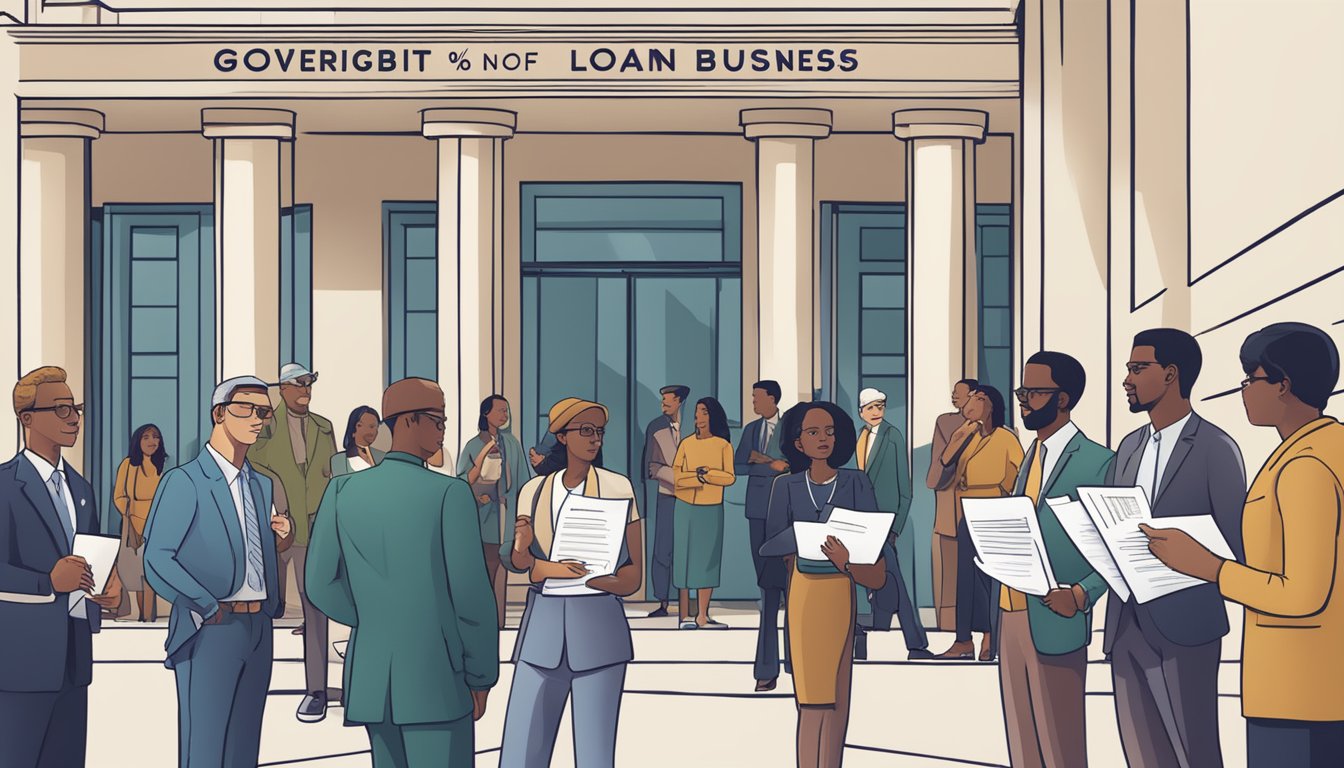If you’re a business owner in Singapore, you may be looking for ways to finance your company. One option to consider is a government business loan. These loans are designed to help businesses access the funds they need to grow and succeed.

To be eligible for a government business loan, you’ll need to meet certain criteria. This may include having a certain level of revenue or being in operation for a certain number of years. The application process can vary depending on the loan program you’re interested in, but typically involves filling out an application form and providing supporting documents.
Government business loans offer a range of features and benefits, such as competitive interest rates and flexible repayment terms. They can also be a good option for businesses that may not qualify for traditional bank loans. If you’re considering a government business loan, it’s important to do your research and choose a loan program that best fits your business needs.
Key Takeaways
- Government business loans are designed to help businesses access the funds they need to grow and succeed.
- To be eligible for a government business loan, you’ll need to meet certain criteria and follow the application process.
- Government business loans offer a range of features and benefits, such as competitive interest rates and flexible repayment terms.
Eligibility and Application Process

Determining Eligibility
Before applying for a government business loan, it is important to determine if you are eligible. Eligible borrowers include SMEs, companies, sole proprietors, and partnerships. To qualify, your company must have at least 30% local shareholding and meet specific criteria, such as creditworthiness.
Additionally, employment size may be a factor in determining eligibility. For example, the Enterprise Financing Scheme (EFS) offers various loans for growth and expansion, but is primarily geared towards young enterprises incorporated within the last 5 years from the date of scheme application.
How to Apply
Once you have determined your eligibility, the application process is straightforward. The first step is to identify the loan that best suits your business needs. This can be done through the e-Adviser for Government Assistance, which recommends loans based on your business profile.
After selecting a loan, you will need to submit an application to a participating financial institution. The ACRA-registered Sole Proprietorships, Partnerships, Limited Liability Partnerships, and Companies are eligible to apply for the Enterprise Financing Scheme (EFS) SME Working Capital Loan. The approval of loans is subject to the participating Financial Institution’s assessment.
It is important to note that government business loans are subject to interest rates and repayment terms. Therefore, it is essential to review the terms and conditions of the loan before applying.
In conclusion, government business loans can be an excellent source of financing for SMEs and other eligible businesses. By determining your eligibility and selecting the right loan, you can take advantage of the benefits of government assistance while growing your business.
Loan Features and Benefits

Looking for a business loan can be overwhelming, but with government assistance, you can access financing that suits your business needs. Here are some of the features and benefits of government-assisted loans.
Types of Loans Available
The government offers various types of loans to help SMEs with their financing needs. These include SME Working Capital Loan, Trade Loan, and Project Loan. SME Working Capital Loan is designed to help young enterprises access financing for their operational cashflow needs. The maximum loan quantum has been enhanced permanently to $500,000 from 1 April 2024 onwards. Trade Loan, on the other hand, is for businesses that need better access to trade financing amidst the current environment of slower business activities and longer payment cycles. The maximum supported loan of Trade Loan is $10m, with 90% Government risk-share. Lastly, Project Loan is for businesses that require financing for fixed assets and infrastructure projects.
Understanding Interest Rates and Loan Amounts
One of the benefits of government-assisted loans is the lower interest rates due to government support. The interest rates are competitive and vary depending on the participating financial institutions. It is essential to note that the interest rates are subject to change and are reviewed regularly. The loan amount varies depending on the participating financial institutions and the type of loan. For instance, the maximum supported loan of SME Working Capital Loan is $500,000, while the maximum supported loan of Project Loan is $30m.
Government Risk Sharing and Guarantees
Government-assisted loans come with a risk share of up to 70% by the government. This means that the government will share the risk of the loan with the participating financial institutions. The risk-sharing helps to reduce the risk for the participating financial institutions, making it easier for SMEs to access financing. Additionally, the government provides a guarantee of up to 70% for SME Working Capital Loan to help SMEs secure financing.
In conclusion, government-assisted loans offer several benefits over traditional financing options, including lower interest rates, flexibility in repayment terms, longer loan tenures for certain schemes, access to a wider range of financing products, and risk-sharing by the government. SMEs can benefit from these loans to access financing for their business needs.
Frequently Asked Questions

How can I apply for a government-backed business loan?
The first step to applying for a government-backed business loan is to research the various loan schemes available and determine which one is best suited to your business needs. Once you have identified a suitable scheme, you can apply through the participating financial institutions. The application process typically involves submitting the required documents and meeting the eligibility criteria.
What are the eligibility criteria for startup business loans in Singapore?
To be eligible for startup business loans in Singapore, the business must be registered and physically present in Singapore. The business must also have less than 6 years of operation and an annual turnover of less than $100 million. Additionally, the business must be able to demonstrate its ability to repay the loan.
How does the Enterprise Financing Scheme support SMEs?
The Enterprise Financing Scheme (EFS) is designed to support SMEs in various stages of growth. The scheme provides financing options for working capital, trade financing, fixed asset financing, and venture debt. The EFS also offers enhanced risk sharing between the government and participating financial institutions, making it easier for SMEs to access financing.
What is the typical interest rate for SME Working Capital Loans?
The interest rate for SME Working Capital Loans varies depending on the participating financial institution and the loan scheme. However, the government provides risk-sharing enhancements for SME Working Capital Loans, which can help to lower the interest rates charged by the financial institutions.
In what ways does the government assist small business owners with financing?
The government provides various financing schemes and initiatives to assist small business owners with financing. These schemes include the Enterprise Financing Scheme, the Temporary Bridging Loan Programme, and the SME Working Capital Loan. The government also provides risk-sharing enhancements for these schemes, making it easier for small business owners to access financing.
Can you calculate your potential repayments on a government business loan?
Yes, you can calculate your potential repayments on a government business loan by using the loan calculator available on the websites of participating financial institutions. The loan calculator allows you to input the loan amount, interest rate, and loan tenure to calculate your monthly repayment amount.




